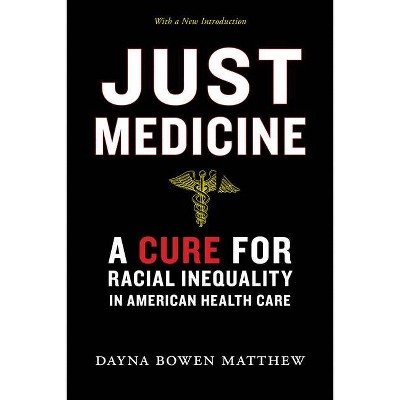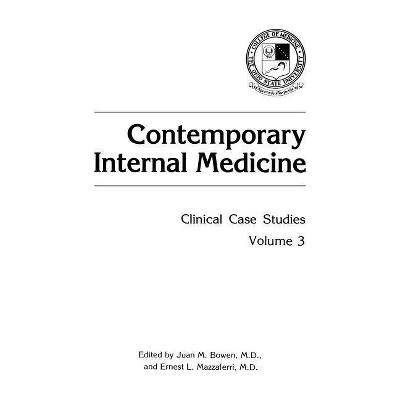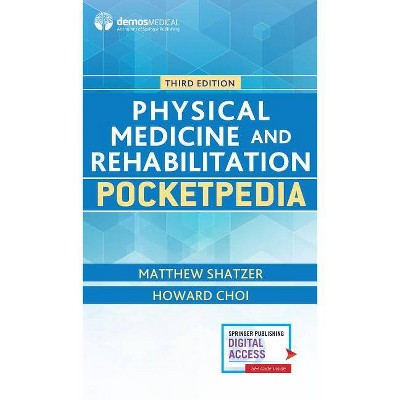Just Medicine - by Dayna Bowen Matthew (Paperback)

Similar Products
Products of same category from the store
AllProduct info
<p/><br></br><p><b> About the Book </b></p></br></br>"Over 84,000 black and brown lives are needlessly lost each year due to health disparities, the unfair, unjust, and avoidable differences between the quality and quantity of health care provided to Americans who are members of racial and ethnic minorities and care provided to whites. Health disparities have remained stubbornly entrenched in the American health care system--and in Just Medicine, Dayna Bowen Matthew finds that they principally arise from unconscious racial and ethnic biases held by physicians, institutional providers, and their patients. Implicit bias is the single most important determinant of health and health care disparities. Because we have missed this fact, the money we spend on training providers to become culturally competent, expanding wellness education programs and community health centers, and even expanding access to health insurance will have only a modest effect on reducing health disparities. We will continue to utterly fail in the effort to eradicate health disparities unless we enact strong, evidence-based legal remedies that accurately address implicit and unintentional forms of discrimination, to replace the weak, tepid, and largely irrelevant legal remedies currently available. Our continued failure to fashion an effective response that purges the effects of implicit bias from American health care, Matthew argues, is unjust and morally untenable. In this book, she unites medical, neuroscience, psychology, and sociology research on implicit bias and health disparities with her own expertise in civil rights and constitutional law. Just Medicine offers us a new, effective, and innovative plan to regulate implicit biases and eliminate the inequalities they cause, and to save the lives they endanger." --<p/><br></br><p><b> Book Synopsis </b></p></br></br><p><b>Offers an innovative plan to eliminate inequalities in American health care and save the lives they endanger<br></b> <br>Over 84,000 black and brown lives are needlessly lost each year due to health disparities: the unfair, unjust, and avoidable differences between the quality and quantity of health care provided to Americans who are members of racial and ethnic minorities and care provided to whites. Health disparities have remained stubbornly entrenched in the American health care system--and in <i>Just Medicine</i> Dayna Bowen Matthew finds that they principally arise from unconscious racial and ethnic biases held by physicians, institutional providers, and their patients. <p/>Implicit bias is the single most important determinant of health and health care disparities. Because we have missed this fact, the money we spend on training providers to become culturally competent, expanding wellness education programs and community health centers, and even expanding access to health insurance will have only a modest effect on reducing health disparities. We will continue to utterly fail in the effort to eradicate health disparities unless we enact strong, evidence-based legal remedies that accurately address implicit and unintentional forms of discrimination, to replace the weak, tepid, and largely irrelevant legal remedies currently available. <p/>Our continued failure to fashion an effective response that purges the effects of implicit bias from American health care, Matthew argues, is unjust and morally untenable. In this book, she unites medical, neuroscience, psychology, and sociology research on implicit bias and health disparities with her own expertise in civil rights and constitutional law. In a time when the health of the entire nation is at risk, it is essential to confront the issues keeping the health care system from providing equal treatment to all.</p><p/><br></br><p><b> Review Quotes </b></p></br></br><br>A powerful socio-legal reflection on the history of health disparities and how that terrible legacy now further impedes racial equality and results in death. . . . Masterfully written. The author provides a captivating narrative that is at once stark and grizzly (how many ways can people of color suffer at the hands of medicine) and yet so provocatively and artfully written that one cannot stop reading. Not since Harriet Washingtons page-turning (and award-winning) book, Medical Apartheid, has there been another that makes medical discourse so captivating.--Michele Goodwin, Chancellor's Professor of Law, University of California, Irvine<br><br>A remarkably ambitious and provocative book on the ways that implicit bias exacerbates racial disparities in health. Matthew provides a critical analysis and call to action that should be taken seriously by all health care professionals, policymakers, and anyone interested in health equality.--Osagie K. Obasogie, UC Hastings<br><br>Having presented a thorough picture of the problems facing minorities in the health care system, Matthew proposes a solution: reform of specific sections of the Civil Rights Act of 1964, which she claims would provide a legal and moral basis to hold liable those who unconsciously discriminate and would help to establish a new standard of care in medicine....[F]ood for thought here.-- "Kirkus Reviews"<br><br>Her ambitious book lays out a case for a legal remedy for racial health inequality.-- "Los Angeles Review of Books"<br><br>Just Medicine is a must-read for everyone! Weaving together from insights from research in history, sociology, psychology, law, and more, Matthew crushes the argument that racial disparities in health and health care are due to factors like biology and bad behavior. Time and time again, Matthew exposes the role of racial bias and discrimination in disparate outcomes. More so, she offers meaningful and achievable suggestions for resolving these problems. Lets hope those with the most power to create these changes are paying attention to this important scholarly contribution!--Angela Onwuachi-Willig, Charles M. and Marion J. Kierscht Professor of Law, University of Iowa College of Law<br><br>Just Medicineis necessary reading for all who envision a society in which health equity is a moral imperative. I would place Matthew's contributions on the scale of Michelle Alexander's transformational book, The New Jim Crow. Matthew not only documents the problem of color-blind racism but also provides solution-oriented road maps for a way forward.-- "Political Science Quarterly"<br><br>The book is highly engaging and worthwhile reading for health care providers, hospital administrators, insurers, medical students and educators, and those involved in civil rights law.-- "Health Affairs"<br><br>This book will spark much debate.-- "Choice Connect"<br>
Price History
Price Archive shows prices from various stores, lets you see history and find the cheapest. There is no actual sale on the website. For all support, inquiry and suggestion messagescommunication@pricearchive.us




















